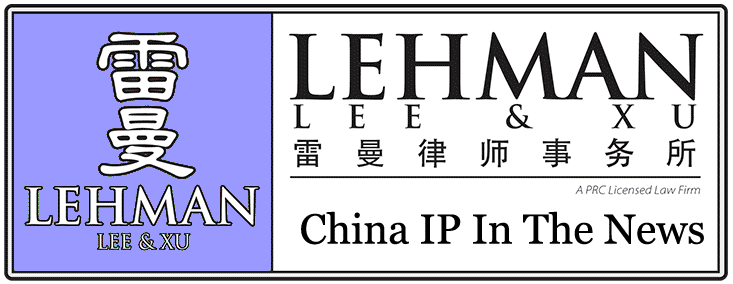
 |
|
LEHMAN, LEE & XU
|
|
China IP In The News
|
|
February 2011: Online Edition
|
|
|
|
|
|
In the News |
|
(2011-01-13,People's Daily) The central government is making greater efforts in fighting violations of intellectual property rights by establishing a weekly updating system with more timely reports from law enforcement authorities, an official said on Wednesday. |
(2011-01-13,China Daily) The number of patents granted in China last year was 40 percent higher than in 2009, according to the national patent watchdog. Along with that drop, domestic applications experienced a large leap -- Chinese applications took over 59 percent of all invention patents granted in 2010. The figure was 50.9 in 2009, exceeding foreign applicants' share for the first time. SIPO's statement attributes the rise to the improved quality of domestic inventions, the country's enhanced capacity in independent innovation and the growing awareness of intellectual property rights (IPRs). The SIPO also released the result of an IPR protection campaign launched last November. Further, the country's IPR authorities had accepted over 400 patent disputes and resolved 233 patent counterfeiting cases. |
(2011-01-12,People's Daily) More than 4,000 people have been arrested for violating intellectual property rights (IPR) since last October as tougher punishments will be enforced to combat the "rampant" problem, a senior government official said on Tuesday. |
(2011-01-06,People's Daily) After winning an intellectual property lawsuit with PepsiCo Inc, the former Chinese beverage market leader Tianfu Cola hopes to make a comeback next year, the company's top executive said. |
(2011-01-05,People's Daily) South Korean firm thwarted in its attempt to register popular name |
(2011-01-05,People's Daily) Patent quality -the number of valid patents - is the key to maintaining intellectual property (IP) research and production advantages, a Chinese intellectual property official, told a Dec 22 forum in Beijing, |
|
|
|
|